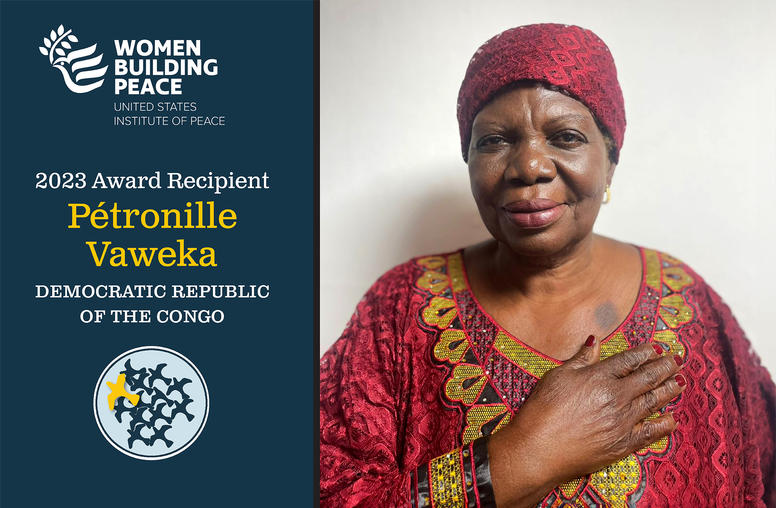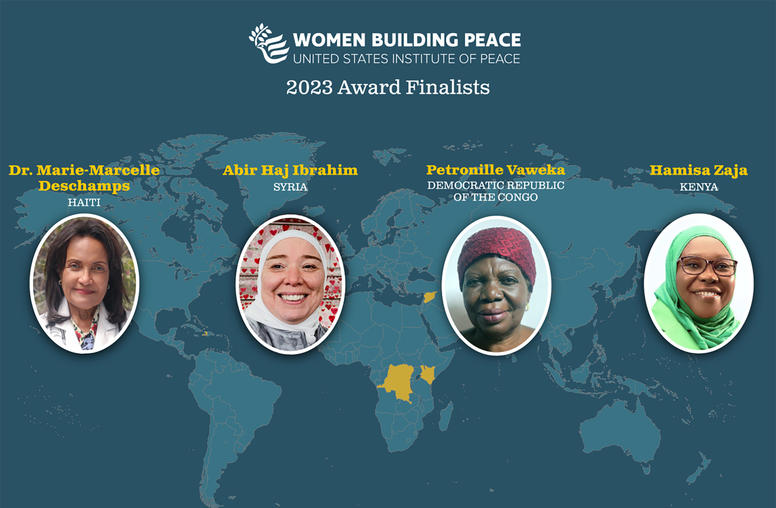Institute Mourns Passing of Former Board Member and Friend Elspeth Davies Rostow
Contact:
| Ian Larsen +1-202-429-3870 cell +1-202-657-7327 |
Lauren Sucher +1-202-429-3822 cell +1-202-657-7326 |

Elspeth Rostow remained a vibrant and committed scholar and educator until her passing. (Photo: University of Texas LBJ School of Public Affairs)
The U.S. Institute of Peace lost a great friend, strong supporter, and early leader with the death on December 9 of Elspeth Davies Rostow. Rostow was the first woman appointed to the Institute’s Board of Directors. She served as a Board member from 1987 to 1995, as Vice Chair of the Board from 1989 to 1991, and as Board Chair in 1991 and 1992.
As board member she was renowned for her ability to communicate penetrating and very much to-the-point analytic comments in remarkably few words. At the same time, she demonstrated a special sense of humor and was described by her daughter as "wickedly funny."
Colleagues’ Tributes
John Norton Moore, first chair of the Institute board, serving from 1986 to 1991, described Rostow as "a great scholar and leader and in all regards a magnificent lady."
Ambassador Sam Lewis, president of USIP from 1987 to 1993, called Rostow, "Brilliant, wise, self-effacing, and delightful to be with," "She brought to the Institute's Board much needed qualities during its early years, and to its chairmanship an extraordinary ability to harness big egos to their task of building this new, unique institution on a solid, enduring foundation. A fine scholar, outstanding teacher, and dedicated student of America's political culture, Elspeth made all those around her feel better about themselves and their nation. She leaves a very large hole in the sky."

Rostow, center, with board members Chester Crocker, left, and Father Ted Hesburgh, right, after a meeting of the board in 1991.
Echoing Lewis’ comments, Charles E. Nelson, the Institute’s Vice President and Senior Counselor, called Rostow "a very special friend—one with a tremendous sense of humor. You never knew when an unexpected punch line was going to come out."
Career
In addition to her service on the USIP board, Rostow had a distinguished career as an internationally renowned expert on foreign policy. She was dean of the LBJ School of Public Affairs at the University of Texas from 1977 to 1983. Her career also included roles as the first woman faculty member at MIT; additional teaching at Barnard College, Sarah Lawrence College, Georgetown University, American University, and the University of Cambridge; and membership on both the President's Advisory Committee for Trade Negotiations and the President's Commission for a National Agenda in the 1980s. In 1983-84, she lectured in 34 countries under the auspices of the Fulbright program and the U.S. Information Agency.
Until her death, Rostow served as Stiles Professor Emerita in American Studies and Professor of Government at the LBJ School.
She served as board chair during a major part of the first Gulf War in 1991 and later in 1992. In that role, she helped lead the way for Congress to substantively increase the Institute’s funding in support of a special Middle East initiative. This was the first of such special Institute programs to be followed by later work in the Balkans, Iraq, and elsewhere.

At a 2005 University of Texas football game in front of a crowd of nearly 80,000, Rostow received the Texas Exes Distinguished Service Award. (Photo: University of Texas LBJ School of Public Affairs)
In a 2006 interview, reflecting on the end of the Cold War in the late 1980s, she said, "The destruction of the Berlin Wall in November 1989 followed by the implosion of the Soviet system in August 1991 were momentous events, the consequences of which were difficult to understand at the time."
She recalled her view that the Soviet Union could fall apart. "Thanks to conversations with [her husband and prominent economist] Walt Rostow on the subject," she said, "I recognized… the collapse of the Soviet economy and the consequential impending collapse of the Soviet Union."
The legacy of the Cold War again came to light during Rostow’s tenure on the USIP board four years later. In 1995, the Institute published the Novikov Telegram, a 1946 Soviet assessment of US foreign policy that was considered a seminal document for the origins of the Cold War.
In the wake of this development, under Rostow’s leadership the Institute convened a conference that included Walt Rostow and prominent historian Arthur Schlesinger on the causes of the Cold War outside of Moscow. According to Rostow, a key result of the meeting was the opening up of Soviet archives to foreign scholars.
Overall, Rostow left an irreplaceable legacy to the Institute as a pioneer, visionary, and scholar. Her sage guidance and steady leadership will be missed.

